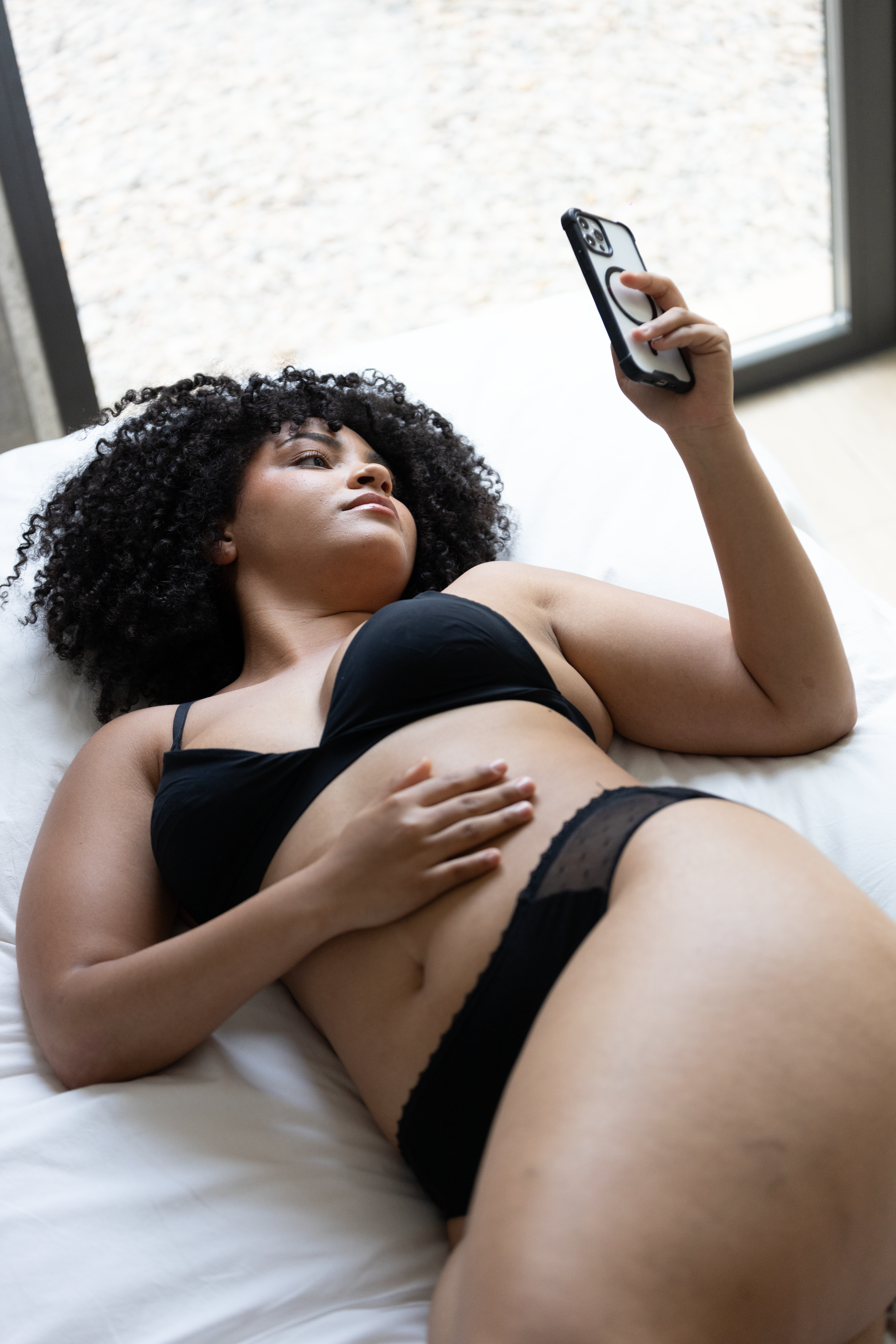
I feel wet but I don't get my period: What could it mean?
Women's relationship with their menstrual cycle is unique and can be different from person to person. Often, women are very attentive to the changes in their body during the cycle, and one of the most noticeable symptoms is the sensation of wetness in the vaginal area. However, there are times when this sensation can happen without menstruation being on its way. In this article, we will explore some of the reasons behind the sensation of wetness without menstruation and how to take action on it.
1. Cervical lubrication
The sensation of wetness in the vaginal area is common and can be attributed to cervical lubrication. The cervical mucus is produced by the cervical mucosa and varies in consistency and quantity throughout the menstrual cycle. During the ovulatory phase, this cervical mucus becomes clearer and more slippery, which facilitates the movement of sperm towards the egg. This lubrication is completely normal and should not be a cause for concern.
If the wet sensation is caused by normal cervical lubrication, there is no need to “fix” anything, as it is a natural physiological process. In this case, the best thing to do is to maintain good intimate hygiene and wear underwear that allows perspiration.
2. Sexual stimulation
Sexual arousal can also lead to a feeling of wetness in the vaginal area, even if you are not on your menstrual period. The female sexual response involves an increase in vaginal lubrication as part of the preparation for intercourse. This response is healthy and natural.
3. Vaginal infections
In some cases, abnormal wetness may be a sign of a vaginal infection, such as a yeast infection or bacterial infection. These infections may be accompanied by other symptoms such as itching, burning, abnormal odor and changes in vaginal discharge.
If you suspect that unusual wetness is caused by a vaginal infection, the solution is to seek medical attention. A health care professional will be able to make a proper diagnosis and prescribe the necessary treatment, which often involves the use of antifungals or antibiotics.
4. Pregnancy
The sensation of wetness without menstruation may also be related to a possible pregnancy. During pregnancy, it is possible to experience increased vaginal discharge due to hormonal changes. If you have been sexually active and there is a possibility of pregnancy, taking a pregnancy test is the best way to confirm or rule out this possibility.
5. Hormonal changes
Hormonal changes, whether due to taking birth control, menopause or other reasons, can influence the amount and consistency of cervical mucus and, therefore, the sensation of wetness. If you are taking contraceptives or other medications that affect your hormones, you may experience changes in vaginal lubrication.
If the wetness is related to hormonal changes due to taking birth control or other reasons, you may need to adjust your birth control method or talk to your doctor about how to manage these side effects. They may recommend a change in the type of contraceptive or adjust the dosage.
6. Ovarian cysts
Ovarian cysts can cause hormonal imbalances, which can lead to increased vaginal discharge and menstrual irregularities. This increased discharge can make you feel wet.
Ovarian cysts are common and many women will have them at some point in their lives without experiencing symptoms. However, if you experience pelvic pain, abdominal bloating or menstrual irregularities, it is advisable to consult a physician. A health care professional can perform a pelvic exam and order an ultrasound to determine if you have ovarian cysts.
Other solutions for wetness
In addition to the solutions mentioned in the previous article, here are ways to manage this situation using intimate care products, such as period panties, panty liners and cloth pads.
Period Panties
Period panties are garments that are designed to absorb menstrual flow, but they can also be useful in situations where you feel wet without menstruation. Here are some ways menstrual panties can help:
- Excess moisture absorption: Menstrual panties are designed to absorb flow, but can also wick away vaginal moisture, keeping you dry and comfortable.
- Discreet protection: These garments offer discreet and comfortable protection, which is especially useful in situations where you don't want to wear bulkier products.
- Sustainability: Reusable menstrual panties are an environmentally friendly option, making them a sustainable choice for intimate care.
Panty liners
Panty liners are thin and comfortable, and can be useful in situations of abnormal vaginal wetness. Here are some advantages of using panty liners:
- Discreet absorption: panty liners are ideal for absorbing extra moisture without adding bulk to your underwear.
- Maintaining freshness: Panty liners can help keep you feeling fresh and comfortable throughout the day.
- Practicality: They are easy to carry with you in your purse for use as needed.
Cloth Pads
Cloth pads are an environmentally friendly and sustainable option for managing abnormal vaginal moisture. Here are the advantages of cloth pads:
- Breathability: cloth pads are breathable and comfortable, which can be especially helpful in vaginal wetness situations.
- Reusable: Unlike disposable pads, cloth pads can be washed and reused, making them environmentally friendly.
- Chemical-free: Cloth pads are free of chemicals and fragrances, making them a safe choice for intimate care.
If you are feeling wet but not on your period and are looking for a solution to feel comfortable and fresh, intimate care products such as menstrual panties, panty liners and cloth pads can help. These products offer discreet and sustainable protection, helping you stay fresh and comfortable throughout the day.





